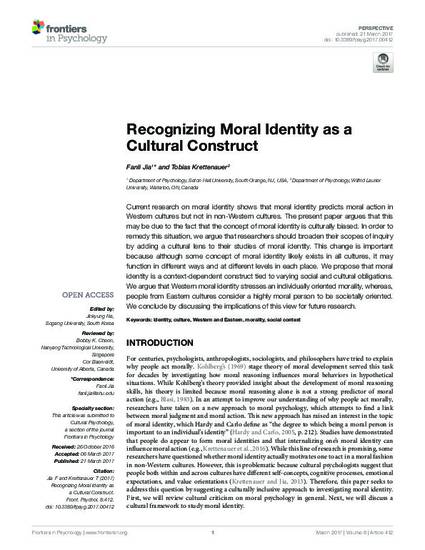
Article
Recognizing Moral Identity as a Cultural Construct
Frontiers in Psychology
(2017)
Abstract
Current research on moral identity shows that moral identity predicts moral action in Western cultures but not in non-Western cultures. The present paper argues that this may be due to the fact that the concept of moral identity is culturally biased. In order to remedy this situation, we argue that researchers should broaden their scopes of inquiry by adding a cultural lens to their studies of moral identity. This change is important because although some concept of moral identity likely exists in all cultures, it may function in different ways and at different levels in each place. We propose that moral identity is a context-dependent construct tied to varying social and cultural obligations. We argue that Western moral identity stresses an individually oriented morality, whereas, people from Eastern cultures consider a highly moral person to be societally oriented. We conclude by discussing the implications of this view for future research.
Keywords
- identity,
- culture,
- Western and Eastern,
- morality,
- social context
Disciplines
Publication Date
March 21, 2017
Citation Information
Fanli Jia and Tobias Krettenauer. "Recognizing Moral Identity as a Cultural Construct" Frontiers in Psychology Vol. 8 Iss. 412 (2017) Available at: http://works.bepress.com/fanli-jia/14/
Creative Commons license

This work is licensed under a Creative Commons CC_BY International License.
